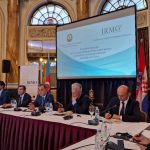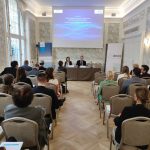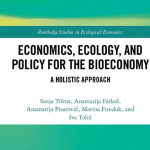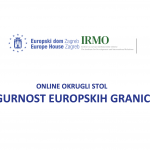Zagreb, Hotel Dubrovnik, Ban Jelačić Conference Room
Friday, November 7, 2014 from 10 to 13 hrs
This workshop is one in a series organized by IRMO and FES on topics discussing EU enlargement, Croatia’s relations with neighbouring countries, regional cooperation and many others which fit the scope of Croatia’s foreign policy. It follows the event from June 2014 which focused on civil protests in Bosnia and Herzegovina (BiH) and their potential for change from within.
This workshop starts by taking into account a number of events that took place since the spring of this year – a Croatian proposal for a tailor-made approach for BiH’s accession to the EU, elections in Kosovo and Slovenia, Albania’s receiving candidate status, the Croatia Summit in Dubrovnik in July focusing on the region, Brdo-Brioni Process meeting also in Dubrovnik a few days later, an August meeting of regional head-of-states in Berlin, hosted by the German Chancellor, a broad Bosnian civil society conference in Vienna in September under the auspices of the Austrian Ministry of Foreign Affairs, general elections in BiH and the Russian’s President visit to Serbia in October. In November, the new EU Commission takes over and just a couple of days before this event, the sixth annual Southeast Europe Foreign Ministers’ Conference with an ambitious agenda takes place.
Enlargement is certainly not a priority for the EU, but it is for the countries in this region. What is the enlargement policy outlook of the new Commission with a new High Representative for Foreign and Security Policy and a new Commissioner for European Neighbourhood Policy and Enlargement Negotiations? Much space has been devoted to discussing scanty possibilities that any new enlargement will take place in the mandate of this Commission while the focus of discussion, the advice we hear, should instead be on implementing reforms in candidate and potential candidate states.
The objective of this workshop is twofold: to discuss a likely format and content of the European approach to the countries in the region in the next years and to reflect on challenges faced by a candidate (Serbia) and a potential candidate state (BiH) in meeting conditions for the EU accession.






